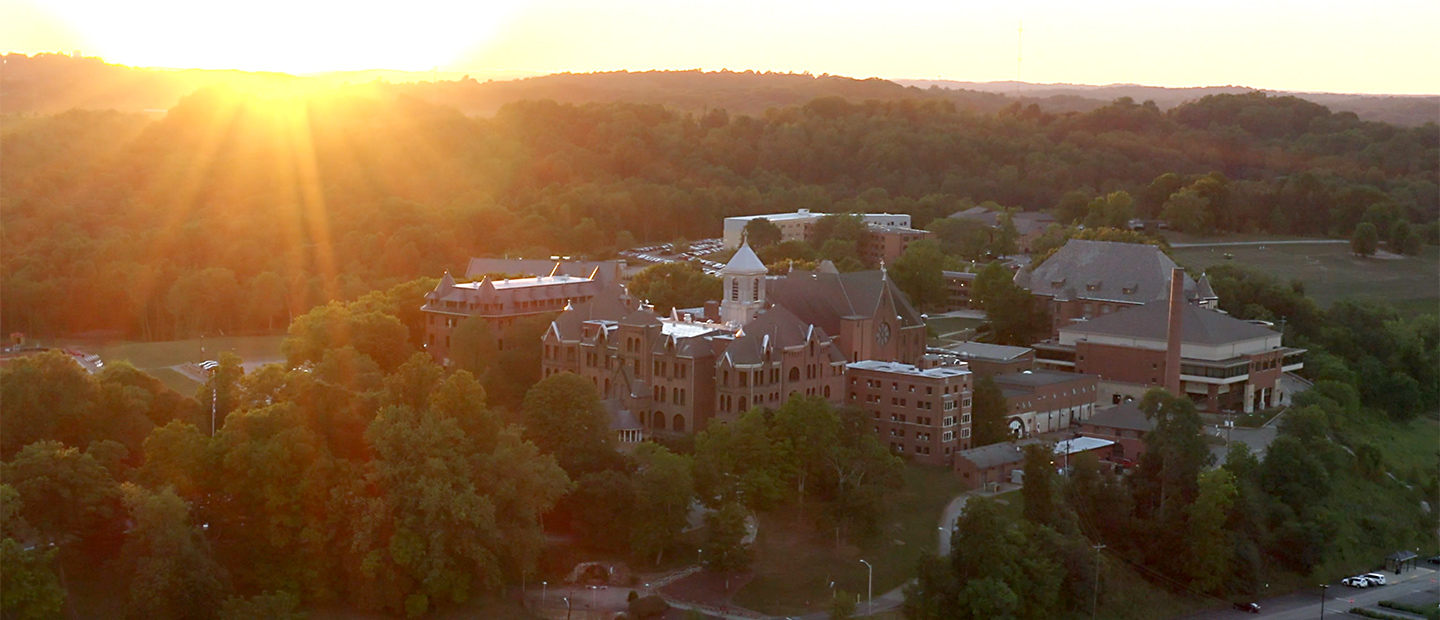Seton Hill University Contributes $70.5 Million to Pennsylvania Economy
AICUP Study Highlights Economic Impact of Independent Colleges and Universities
Seton Hill University produced 843 jobs and had a total economic impact of more than $70.5 million in 2014, according to an analysis conducted by the Association of Independent Colleges and Universities of Pennsylvania (AICUP).
Seton Hill joins with the 12 other independent colleges and universities in the Metro Pittsburgh area in creating a total economic impact of $3.1 billion in 2014, according to AICUP.
“The AICUP study demonstrates the profound economic impact that Seton Hill University and other independent colleges and universities have locally, regionally and throughout the state of Pennsylvania,” said Seton Hill President Mary C. Finger. “Seton Hill’s growth - both on our hilltop campus and in downtown Greensburg – has been a driving force in expanding the economy of the City of Greensburg and beyond as restaurants, shops and new housing catering to students and visitors have opened. Seton Hill is proud to be part of the City of Greensburg. We will continue efforts to help make our town a wonderful place to learn, work and live.”
“As the numbers show, the 13 Metro Pittsburgh independent colleges and universities play an important role in the regional economy, creating jobs, partnerships and business opportunities for Western Pennsylvanians,” said Don Francis, AICUP president. “Independent higher education continues to grow in importance as an industry, as an employer, and as an ignitor of prosperity in towns throughout Pennsylvania,” Francis said. “The independent higher education sector also continues to have enormous economic impact by developing human capital for the Commonwealth’s workforce.”
AICUP surveyed its member colleges and universities and examined U.S. Department of Education data and other sources to arrive at a Metro Pittsburgh impact of $3.1 billion in economic benefit provided by the region’s 13 independent colleges and universities. Statewide independent colleges and universities in more than 60 communities contribute $17.97 billion to Pennsylvania’s economy.
In addition to Seton Hill, Metro Pittsburgh independent colleges and universities include Carlow University, Carnegie Mellon University, Chatham University, Duquesne University, Geneva College, La Roche College, Point Park University, Robert Morris University, Saint Vincent College, Washington & Jefferson College, Waynesburg University and Westminster College.
Among AICUP’s findings:
· Seton Hill University directly purchased goods and services from the state’s businesses totaling $21.9 million in 2014. Statewide the sector spends $6.8 billion annually on goods and services.
· Students attending Seton Hill directly spend more than $5 million annually, benefiting book publishers, general merchandise stores, grocery and convenience stores, real estate rentals, amusement and recreation establishments, restaurants, clothing stores telecommunications and utilities, furniture and home furnishing stores, wholesale trade industries, and other businesses. Across the state, independent sector students spend $1 billion annually or $2.7 million a day at local Pennsylvania businesses. The total economic impact of this spending is $1.7 billion.
· Seton Hill provided jobs to 489 employees in 2014 with additional statewide employment related to the institution providing jobs to 354 people for a total of 843 jobs attributed to the University. Seton Hill paying more than $20 million in wages in 2014. Statewide independent colleges and universities pump $5.67 billion in salary and wage dollars into Pennsylvania’s economy by employing 78,764 residents, besting the annual payrolls of law firms, engineering service firms, commercial banks, temporary help businesses, pharmacy/drug wholesalers and full-service restaurants.
· Seton Hill employees paid $591,917 in state income taxes and $230,353 in taxes to local governments.
· Seton Hill’s construction projects in recent years, particularly the Seton Hill Performing Arts Center and the Seton Hill Arts Center, have assisted in revitalizing the downtown Greensburg district by improving the arts and cultural opportunities in the community.
Despite economic instability in the five years since AICUP last measured the economic impact of independent colleges and universities, the sector remains the fourth ranked private sector payroll in Pennsylvania. Only corporate management offices, hospitals and physician offices exceed independent colleges and universities in payroll.
The independent higher education sector is the largest of Pennsylvania’s four sectors of higher education. Nearly 290,000 students attend independent colleges and universities in the state, accounting for 42 percent of all enrollments and 49 percent of degrees awarded in the Commonwealth.
A brochure containing the major findings in the report is on AICUP’s website.
The Association of Independent Colleges and Universities of Pennsylvania (AICUP), the only statewide organization that serves exclusively the interests of private higher education within the Commonwealth, exists to complement and support the work of campus leaders. With a membership of 88 private colleges and universities within Pennsylvania, the Association provides a variety of services and programs tailored specifically to the needs and situation of independent higher education. A list of AICUP’s member colleges and universities is included on its website at www.aicup.org.



